Deal Between Iran, Iraq Martyrs’ Foundations Irks Iranians
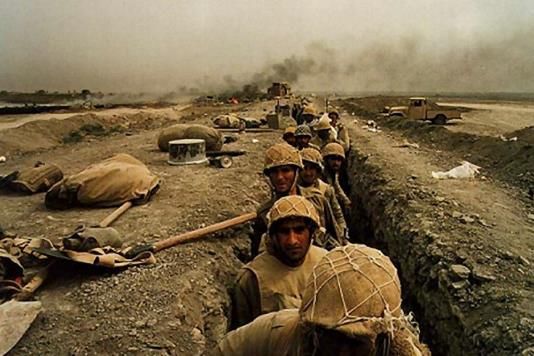
Iranians and veteran groups have slammed a plan by their government to provide assistance to Iraqis who fought in the 1980s war against Iran.

Iranians and veteran groups have slammed a plan by their government to provide assistance to Iraqis who fought in the 1980s war against Iran.
During his visit to Baghdad last week, the head of Iran’s Foundation of Martyrs and Veterans Affairs, Amir-Hossein Ghazizadeh Hashemi, signed a memorandum of understanding to provide a wide range of services to Iraqi veterans of the Iraq-Iran war and the families of Iraqis killed during the eight-year conflict.
The Iranian side will build homes in Iraq and set up a branch of Iran’s Shahed University to admit students from the families of Iraqi servicemen killed and veterans. The MoU is also set to pave the ground for the admission of Iraqis to universities in Iran.
Iran has been spending a lot of resources in Iraq to build influence.
Many Iranians have criticized the move, saying the Islamic Republic can barely provide the needed services for Iranian veterans and their families.
The Society of Devotees of the Islamic Revolution has issued a statement to condemn the agreement, questioning the justification for such a measure, and urging the resignation of Ghazizadeh Hashemi.
The society described the Iraqi veterans as “the murderers of the Iranian sons”, asking, “Have we really reached a point where the place of the murderer and the martyr has changed? When you are incapable of taking care of Iranian veterans, how have you announced readiness to provide such services to the Iraqis?”
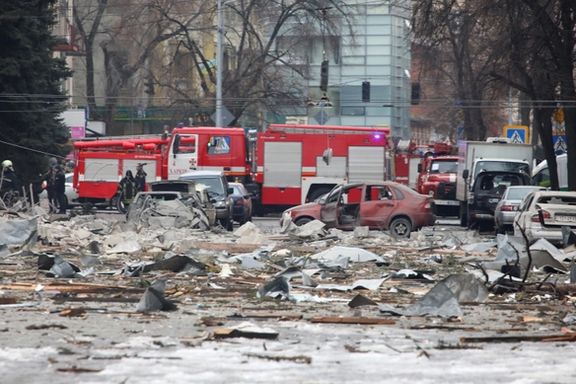
Iranian Communications Ministry said some 400 gigabytes of the country’s internet capacity was cut off due to the Russian invasion of Ukraine.
The public relations manager of the Ministry of Communications and Information Technology, Mehdi Salem, made the announcement in twitter on Saturday.
He said that according to the country’s network operations center, this “400 gigs” were provided by Russia’s largest digital services company Rostelecom through Ukraine and has been cut off since Saturday evening.
Salem added that since the network routes from Ukraine remain disrupted and takes a long time to reconnect, the ministry is seeking to establish alternative links through other international routes.
As Ukraine's internet service has been disrupted by Russia's invasion, Elon Musk’s company SpaceX has activated global satellite internet constellation Starlink for the Ukrainians.
Internet services on mobile phones and landlines were also disrupted Friday morning in the Iranian capital Tehran and the nearby city of Karaj.
The Iranian government has been blocking thousands of websites and top social media apps for years in a bid to control the flow of information.
Iranians were outraged last week when a group of 18 hardliners in a parliament committee claimed that they had ratified a bill to further restrict internet and social media access.
Some people reacted to the Friday disruption by blaming the authorities, saying the outage was a trial run for the plan to further restrict internet and social media.
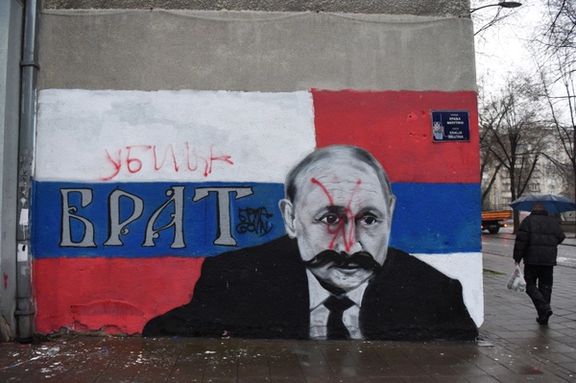
A former senior commander of Iran's Revolutionary Guard, IRGC, has called Russian President Vladimir Putin "a dictator" and his attack on Ukraine a “disgrace.”
Also, a well-known academic in Tehran says Putin is "unpredictable" and "has done more harm to himself than to those he considers his enemies." He has called on Iranian officials to distance themselves from Putin.
This comes while Iran's top officials’ including Supreme Leader Ali Khamenei and President Ebrahim Raisi have expressed support for the Russian invasion of Ukraine blaming the United States for the crisis.
Hossein Alaei, the former chairman of the IRGC joint staff (1997-2000) and commander of Iranian navy (1985-1990), has written in an article that although the war in Ukraine has so far served the interests of the US and China, it has caused a disgrace for Russia's “dictator Putin”. The article was published in Jamaran website, close to Iran's reformists and managed by Hassan Khomeini, a grandson of the founder of the Islamic Republic.
Alaei said that the war will last long with long-term implications for the people of Russia and Ukraine. He opined as a result of the war the people of Russia will look forward to an end to Putin's presidency.
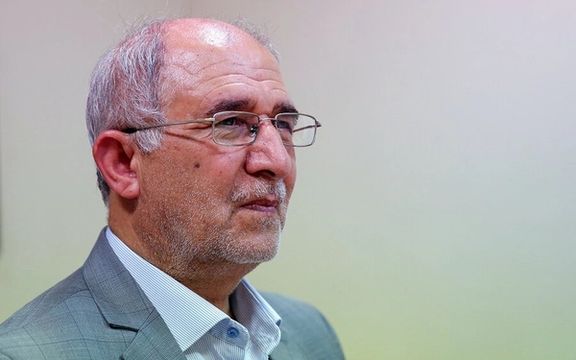
General Alaei stressed that ten days after the start of the war, Putin is now entangled in the quagmire of the occupation of Ukraine and cannot save himself from the trouble he has created. He added that thanks to the resistance by Ukrainians and the alliance of Europe and the United States against Russia, Putin finds himself in a tough situation. "Although it is too early to talk about the outcome of this war, one can imagine that it is a war of attrition to last for a long time," he added.
Assessing possible outcomes of Putin's action, Alaei said that despite the destruction of infrastructures and the displacement of nearly a million Ukrainians, reinforcement of Europe's military capabilities and solidarity between the EU and the US, as well as the expansion of NATO will be the consequences of this war. Meanwhile, Alaei warned that the Islamic Republic should understand and condemn Russia's aggression more than any other country as it has already experienced the Soviet Union's support for Saddam Hussain in his war against Iran.
In an Interview with the reformist daily Arman on Sunday, Iranian academic Pirouz Mojtahedzadeh called on Iranian officials to distance themselves from Putin. Mojtahedzadeh, a political scientist, quoted other academics as saying that Putin might even resort to using Russia's nuclear power if the conflict in Ukraine further intensifies.
However, he said Putin does not hold all the power in Russia and there are others around him who are watching his moves. They know that using nuclear weapons will do more harm to Russia than to other countries. However, he said that Putin has gone beyond the realm of logic and wisdom. He added that his behavior reminds everyone of former Iraqi dictator Saddam Hussain when he launched his invasion of Kuwait.
Mojtahedzadeh charged that Putin has lost his self-control under immense international pressure following the invasion of Ukraine. "I believe the sanctions imposed on Russia by the US and EU will destroy Russia," Mojtahedzadeh said, adding that, "Perhaps someone wishes to mess with the global balance of power. But this is no joke. No country can eliminate this balance."
Assessing Iran’s reaction to the war in Ukraine, Mojtahedzadeh said: "I have already warned that Iran should not look for unilateral relations with Russia and should prove this to the world by sticking to UN resolutions."
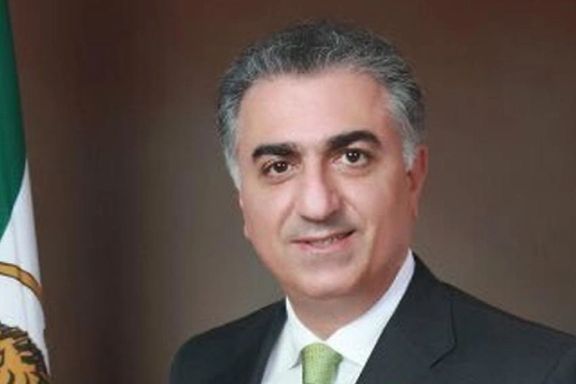
Iran's exiled crown prince Reza Pahlavi says Iranians stand in solidarity with Ukraine unlike “the dictatorial regime” of the Islamic Republic.
In a letter to Ukrainian President Volodymyr Zelenskyy, Pahlavi said that “the freedom loving people of Iran have defied regime threats and violence to protest the [Russian] invasion and show that they stand with the people of Ukraine”.
“While governments around the world rightly rally to your aid and people of every creed stand in solidarity with your own, the dictatorship in my country, Iran, has stood with those who have violated your territorial integrity and attempted to usurp Ukraine’s sovereignty”, he said.
Pahlavi added that the people of Iran “know the struggle of confronting a dictator as we stand up for freedom”, expressing hope that “when both our nations are free again, we will be partners for peace and prosperity”.
On Wednesday, the Islamic Republic abstained from voting for a UN General Assembly resolution deploring the Russian invasion of Ukraine.
Iran’s president and other officials have supported Russia’s move by blaming the United States and NATO for provoking the invasion.
Hundreds of Iranians on social media have been expressing anger at the invasion and criticizing the government’s position. Some are attacking Supreme Leader Ali Khamenei, calling him a lackey of Russia.
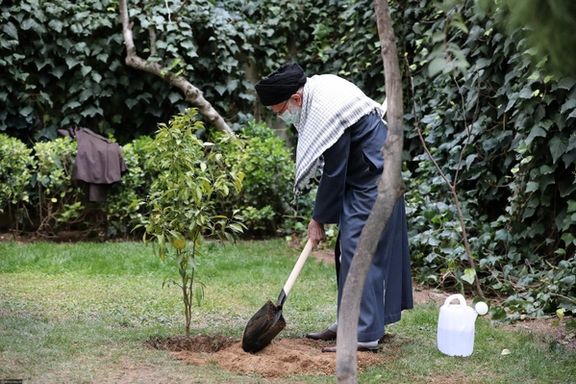
Iran’s Supreme Leader Ali Khamenei has planted two saplings to mark the national Arbor Day, describing planting of a tree as a “religious and revolutionary” action.
Khamenei planted the fruit tree saplings on Sunday morning, on the occasion of the national tree planting day.
He urged all government institutions to take measures to preserve the country’s water, soil, and wildlife.
Khamenei said, "The destruction of forests and the environment and vegetation is the destruction of national interests" and called on the authorities to protect trees from profiteers.
Despite Khamenei’s public expression of support for the environment, successive Iranian governments have left a bad record in protection of natural resources.
In December 2021, the head of the forestry scientific association, Ali Banagar, expressed concern about the speed of deforestation in Iran, enumerating the factors that fuel the trend, including the country’s aggressive pursuit of development projects through often illegal constriction of luxury vacation houses, wood smuggling and illegal logging, encroachment on forests and land grabs, forest fires, as well as pollution and landfills.
Hit by the most severe drought in decades, Iran is reportedly increasingly losing its forests and vegetation, with forest acreage having decreased from 19 million acres to 14.4 million between 1900 and 2012, and further shrunk to 10.7 million by 2015.
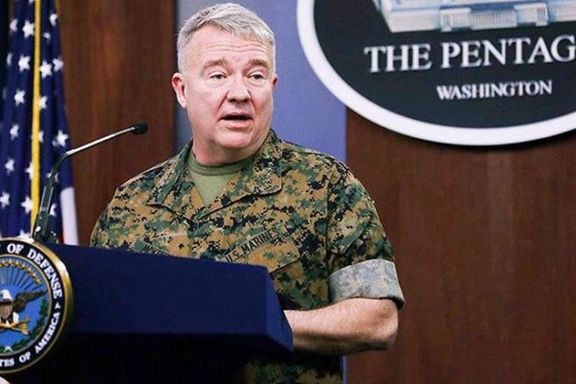
The outgoing chief of the United States Central Command (CENTCOM) says the US will do everything possible to prevent it from producing nuclear weapons.
During his farewell visit before stepping down as the head of CENTCOM, General Kenneth F. McKenzie told Israel’s Hayomthat the Islamic Republic is the region’s “principal bad actor” and “biggest threat to security”.
"We have a couple of goals with Iran”, he said, adding that the first is stopping Tehran from acquiring nuclear weapons, and then deterring Iran from taking offensive action either against US interests or its partners through their proxies.
Referring to Iran’s support for Houthis in Yemen targeting Saudi Arabia and the United Arab Emirates, and Hezbollah in Lebanon, or militias in Iraq and Syria, McKenzie expressed doubt that the US can stop the malign activities of Iranian proxies. “I don't know that we have the ability to actually stop that kind of activity… but what we can do is prevent escalation”.
He also highlighted that the expanding threat from Iran’s ballistic missiles, unmanned aerial systems, cruise missiles, adding, “Everyone sees the growth of this threat, which has been marked over the last five years”.
McKenzie spearheaded efforts to boost cooperation with Israel – which joined CENTCOM last year after being reassigned from the EUCOM – and with other countries of the region, including UAE, Bahrain, Egypt, and Jordan, through a series of joint drills designed to display a united front against Iran.